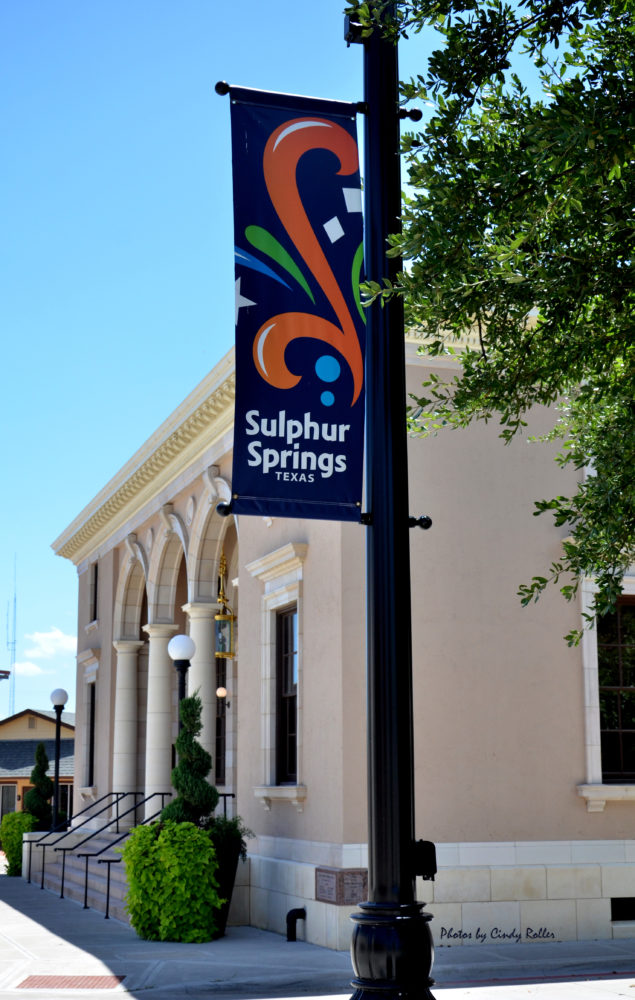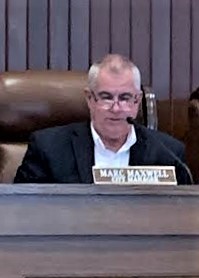The Sulphur Springs City Council retreat spanned more than 3 hours Thursday and provided the elected officials with a fuller picture of the current state of city government, according to City Manager Marc Maxwell.

The retreat is an annual event in which the council and city department representatives and officials get together and discuss potential appointments of representatives to a number of regional boards and mayor and mayor pro tem on the council. Although no action is taken, the council does suggest names to be presented at future city council meetings for approval.
The retreat also gives each department head an opportunity to discuss any issues facing their departments now or in the future. That continued to be the case at the May 20 retreat this year. Maxwell said while the issues are typically tings that have been mentioned before, the meeting gives the council and staff a good idea the direction things are going in the city, and remind everyone what all the big issues are.
The city manager said the tax increment reinvestment zone and property tax revenues were among the highlights discussed. The status on the first is that it has shown a 10 percent growth and the curve is steepening. There’s been a lot of sales tax growth downtown, an increased of approximately $60,000 in new sales tax and is still expected to grow. Property tax revenues, however, were down in the last year due to COVID-19’s impact on the market.
COVID also resulted in a 33 percent drop in hotel occupancy tax over the last year. Prior to that, Maxwell noted, hotel occupancy tax was on an upward trend and is expected to continue rising in the future. Conversely, the mixed beverage tax is up, and has in fact quadrupled since the revitalization and sales of the beverages downtown.

The city’s general fund and enterprise debts are declining, Maxwell noted. City officials expect “to make final payments on couple of big bonds,” in 2022, freeing up about $1 million a year which can be channeled to streets and utility work. Maxwell said city is “now on a pay-as-you-go capital improvement plan,” and not having to take out debt to finance streets and sewer project. The city has been working to pay off more debts, and that process, the city manger said, has started accelerating thanks to efforts at the city to become a little more efficient each year. That, he said is starting to pay off.
The city officials also Thursday briefly reviewed the open space and parks master plan, the city manager reported. Two recreational additions that were mentioned include the possibility of a fitness court at the renovated Pacific Park on the site of the old Grays Building as well as a beach area and pavilion at Coleman Park. The latter was part of the original plan for Coleman when it was constructed, but there wasn’t enough money for that. While the city isn’t sure if funds will allow that to come to fruition, the items were in the parks master plan, devised from input from the community, and were reviewed as items for potential future consideration, funding permitting.
In the community development department, the issue of urban sprawl, the continued expansion of construction of new subdivisions in areas that did not already have water, street and sewer utilities was again discussed, Maxwell noted. Water and streets per capita have continued to increase over numerous decades. The city is working to stop or at least reduce urban sprawl in Sulphur Springs, and the need for additional city revenue to cover the cost of for upkeep of those extra services, is offering a 380 program which offers incentives to induce contractors and developers to build on lots located on existing street. City officials have identified 900 lots in town that are undeveloped but are already along an existing street.
The 380 program or infill housing program, Maxwell said, is starting to gain momentum, with developers looking for lots with “issues” such as tax liens that can be bought cheaply, with potentially from $5,000 to $20,0000 in certain fees reimbursed by the city. Requests have been approved regularly at the monthly city council meetings since the policy was approved by the City Council.
While any existing city tax liens would have to be paid upfront, the city would reimburse the builder upon completion of a single famiy home. Demolition costs can also be included in those fees too. If say a house needs to be demolished, the build could pay the city demolition costs and city staff would demolish it for the developer, to be reimbursed on completion. This would take care of demolition and eliminate blight at the same time, Maxwell noted. Water and sewer tap fees and building permits could be reimbursed upon completion of the home.
“This program is a grand slam home run,” Maxwell said. “It also provides housing. It takes care of so many things with one action.”
Another issue voiced by city staff during the retreat was a “severe labor shortage in Hopkins County.”
“The city is not immune to that,” Maxwell said. “In my years here, this is the first time we’ve put a sign up in front of the water office: now hiring. We’ve not gotten much in the way of applications. We expect competition from other cities will intensify. It’s hard to hire cops right one. Nobody is applying in big cities either. We’ve been fortunate and are keeping an eye on it.”

Maxwell said labor statistics as of Thursday showed showed there are 1,2975 employees paid by 873 employers, with an average wage including manufacturing and all other wages, is $19.80 an hour. The average wage from 38 manufacturers in Hopkins County is $25.95 an hour. The average wage from the 6 food manufacturers, as reported Thursday, was $27 an hour. The average wage from the 10 fabricated metal production manufactures in Hopkins County is $29.35.
From those statistics, Maxwell said, rose the matter of future requests from employers for tax abatements and whether they should be considered if the request brings down or isn’t raising the average wage? That could be a discussion at a future meeting, but as with all other items that arose during the retreat, they were just discussed. No items were presented for action during the retreat.
While the waste water treatment plant was recently updated, focus now is turning to issues at the water treatment plant. The city is hoping to receive funding from the American Rescue Act that would allow some key elements at the plant to be replaced and remove any immediate worries.
The former Thermo mine property was discussed as an ideal business park, but significant investment would be required for that, Maxwell said.
“This was a really good opportunity for the Council to go over the 30,000 foot view,” Maxwell said of the annual retreat. “It’s a healthy process to go through. Each city department knows their own issues. This was good for the Council and other departments to the full view of the city.”



